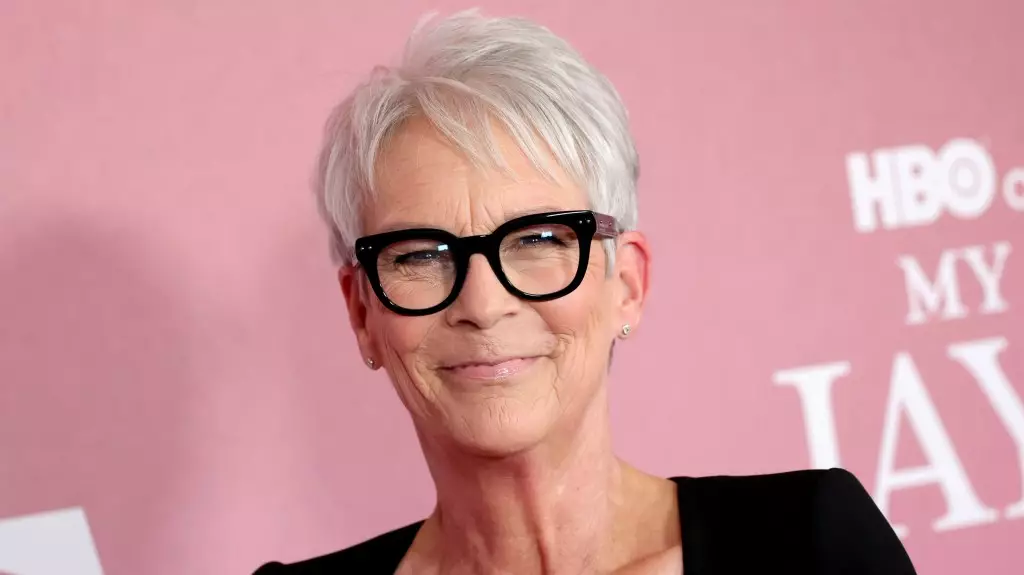Hollywood perpetuates a relentless narrative that venerates youth and dismisses age, especially for women. Jamie Lee Curtis’s candid reflections on her parents’ careers shine a glaring spotlight on a systemic problem that continues to haunt the entertainment world. Her assertion that her parents, Janet Leigh and Tony Curtis, saw their careers evaporate simply because of their advancing years resonates deeply. It exposes a disturbing truth: aging in Hollywood is often a career sentence rather than a chapter of experience and wisdom. Curtis’s personal story isn’t just an anecdote; it’s a mirror reflecting industry-wide biases that value superficial beauty over authentic talent and life experience. Her decision to “self-retire” decades before her time is a quiet but potent protest against a culture that strips away relevance from those who age, particularly women.
This narrative reflects a broader societal failure—one that equates aging with diminishing value. Hollywood’s obsession with portraying the young as the only desirable, the only relevant, and the only profitable model creates an environment where older actors, especially women, are systematically sidelined. Curtis’s observations underscore that this isn’t just about individual actors but about cultural attitudes that reinforce ageism and superficiality at systemic levels, trapping many talented individuals in a vicious cycle of declining opportunities as they grow older.
The Illusion of Perfection and the Industry’s War on Natural Beauty
Curtis’s bold stance against cosmetic surgery and filters reveals a broader cultural critique. Her use of the wax lips as a symbol of resistance is a visceral statement against the destructive pursuit of “perfection.” She articulates what many women feel but are often too afraid or marginalized to express—the notion that societal pressure to conform to an artificially constructed standard of beauty is actively disfiguring generations of women. Her blunt language about “genocide” isn’t hyperbole but a provocation meant to awaken us to the scale of self-destruction being normalized and even celebrated.
The industry’s promotion of cosmetic procedures and AI filters creates an impossible dichotomy: a beauty standard that is curated and manipulated, erasing authenticity in favor of superficial illusion. Curtis’s critique that “better is fake” challenges us to reconsider what true beauty entails. The proliferation of filters and surgeries isn’t just about aesthetics; it’s a symbolic erasure of individuality and natural aging, a cultural loss that reduces women to commodities of visual perfection. Her outspoken opposition highlights a critical dilemma: are we genuinely aging gracefully and embracing our true selves, or are we succumbing to a manufactured facade that preys on insecurities?
Breaking the Silence: A Call for Transformation in Hollywood and Beyond
Curtis’s candor about her own experience—having undergone surgery at 25 and then regretting it—serves as a wake-up call. Her vocal stance invites a deeper conversation about mental health, self-acceptance, and the destructive beauty myths that dominate the media landscape. Her advocacy isn’t just about individual choice but about challenging the cultural narratives that push women to disfigure their appearances and deny the natural aging process.
Her active participation in projects like the “Freakier Friday” sequel, alongside her roles in upcoming productions such as a “Murder, She Wrote” reboot and “Scarpetta,” signifies a strategic effort to redefine her narrative on her own terms. Curtis’s willingness to take on complex roles and executive produce projects that champion real stories demonstrates her commitment to shifting Hollywood’s focus from superficial youth to meaningful storytelling that values experience.
This crusade isn’t merely personal—it’s revolutionary. If Hollywood begins to genuinely embrace diversity of age and looks beyond superficial standards, it can help catalyze societal change. Recognizing that aging is an integral part of human life, and that authenticity holds power, can dismantle the damaging illusions that have dictated beauty standards for far too long.
Challenging the Status Quo for a More Inclusive Future
Curtis’s outspoken critique underscores the urgent need for industry reform—one that celebrates older actors, diverse representations, and authentic self-expression. Her advocacy reminds us that true beauty resides in our uniqueness and lived experiences, not in artificial interventions or filtered illusions. Hollywood has historically prioritized fleeting youth, but it is time to shift toward a narrative that respects and promotes genuine aging as a mark of resilience and dignity.
Her courage in speaking out paves the way for a more inclusive future where aging is no longer a limitation but a celebration. Hollywood’s potential to change societal perceptions hinges on its willingness to challenge taboos and embrace a broader spectrum of human beauty. Curtis’s stand signals the beginning of a crucial cultural shift—one that values authenticity, respects natural aging, and finally rejects the superficial standards that have long dictated what is considered beautiful.
